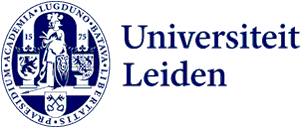
Team with staff from Leiden wins important open science prize
A team including staff from Leiden University won the Open Initiative Trophy on 11 February, a prize for the best open science initiative in the Netherlands. The winners developed Reprohak, a hackathon-like event where participants repeat research to see whether the results were reproducible.
The Open Initiative Trophy is the initiative of the National Open Science Programme, and was awarded at the annual Open Science Festival in February. The winning team comprises staff from Leiden University, the LUMC, Erasmus University Rotterdam and universities from the United Kingdom and Argentina. Kristina Hettne (Centre for Digital Scholarship) and Daniela Gawehns (LIACS), who were in the team that developed Reprohack, tell us more about it.
What was your reaction on hearing the news?
Kristina Hettne: ‘Wow, this is such great recognition! I hope it inspires others to organise their own Reprohack.’
Daniela Gawehns: ‘I wanted to tell the news to the other ladies on the Reprohack team!’
What exactly is Reprohack?
Gawehns: ‘Reprohack is a hackathon-like event that focuses on reproducing research results. The authors of scientific papers can “donate” their work by making not only the article but also the underlying data and codes available. During the event the participants try to repeat the research to see whether outsiders can reproduce it.’
Hettne: ‘The papers are often donated by the authors themselves, for instance because they’d like feedback on their work before sending their articles to leading journals. You therefore work on reproducibility, but you also create a safe environment for people who want to find out more about open science.’
What led you to start Reprohack?
Gawehns: ‘Reprohack is the initiative of Anna Krystalli from the University of Sheffield. I discovered her work at a point when I was feeling really frustrated: I couldn’t manage to reproduce the result of one of my own algorithms. Krystalli, a few other colleagues and I developed Reprohack as the motivation to improve our own research, and also to fill a gap in the teaching on reproducibility.’
Why is open science so important to you both?
Hettne: ‘Because I believe that open science can accelerate science in so many different ways! I also think it helps make science more inclusive because you make it more accessible to beginning and advanced scientists all over the world.’
Gawehns: ‘Open science is also about doing responsible research. If you share not only your results but also your datasets and algorithms, this creates more transparent, robust and responsible science. It is the responsibility of us scientists to do that, towards our colleagues and towards the general public.’
Open Science programme at Leiden University
Open science is about transforming the practices of knowledge creation and communication in all branches of science. The transition to open science means a culture change and requires a coordinated, structures and measurable approach. Leiden University appreciates the importance of open science and has therefore started an Open Science programme. To ensure the process runs smoothly, the Executive Board has appointed Paul Wouters, dean of the faculty of science, as an open science ambassador.
